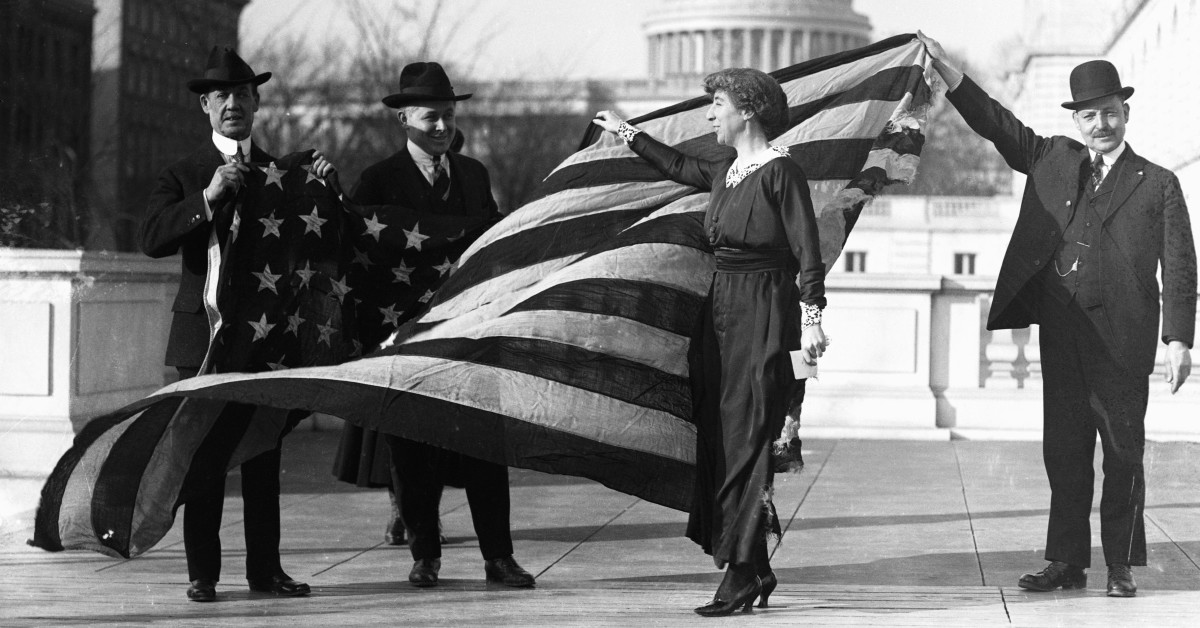U.S. Representative Jeannette Rankin made history in 1916 as the first woman to hold a seat in Congress and the only woman who ever voted to give women the right to vote.
Born and raised on a ranch near Missoula, Montana, Rankin worked hard right alongside the men of the frontier. She graduated from the University of Montana in 1902 and lived in California, New York and Washington state before returning home to fight for women’s suffrage. Rankin’s voice was heard in 1911 as the first woman to speak before the Montana state legislature arguing in support of enfranchisement for women, and she was critical in the 1914 vote to grant unrestricted voting rights for women in Montana.
As a Congresswoman, Rankin served two nonconcurrent terms in the House of Representatives, first in 1917–19 and again in 1941–43.
“I wish to stand for my country, but I cannot vote for war.”
Rankin’s tenure in Congress fell at the eve of both world wars. A lifelong pacifist, she voted against declaring war on Germany in 1917 and on Japan in 1941. Both times, it cost her re-election. As the sole voice against entering World War II after the attack on Pearl Harbor, she was inundated with vitriol. One newspaper, however, wrote of her refusal to send American men to war,
“Probably a hundred men in Congress would have liked to do what she did. Not one of them had the courage to do it. The Gazette entirely disagrees with the wisdom of her position. But Lord, it was a brave thing! And its bravery someway discounted its folly. When, in a hundred years from now, courage, sheer courage based upon moral indignation is celebrated in this country, the name of Jeannette Rankin, who stood firm in folly for her faith, will be written in monumental bronze, not for what she did, but for the way she did it.”
Later in life, at 88 years old, Rankin organized against U.S. involvement in Vietnam. The Jeannette Rankin Brigade, a coalition of 5,000 participants from women’s peace groups, marched in Washington, D.C. to present a peace petition to the Speaker of the House in 1968. The march was the largest by women since the Woman Suffrage Parade of 1913.
Her legacy is one of women’s rights, voters’ rights, safer work practices, peace activism, and bravery.

